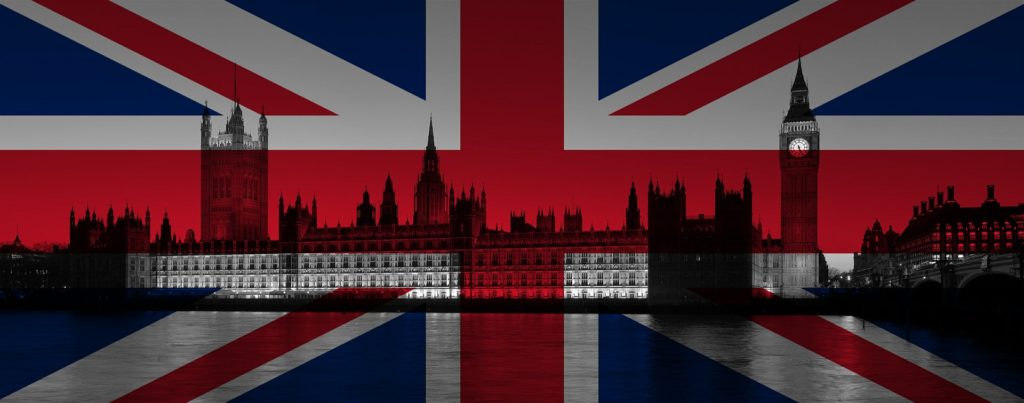
At least seven people died in a series of attacks in London coordinated by Islamist terrorists on Saturday. More than 40 were injured. For hours, fear gripped the country.
After the recent tragedies at Westminster and Manchester, the incident in London marks the third time in 10 weeks terrorists attacked the United Kingdom.
Sadiq Khan, the Labourite mayor of London, took to Facebook to “condemn [Saturday’s attacks] in the strongest possible terms.” But last year, Khan said in an interview that terror attacks are “part and parcel of living in a great global city.”
Khan is wrong. The West should not get used to terror attacks; it should seek an end to this war through victory over Islamism.
Britons inherit a great tradition of resistance to tyrants. Whether combatting French revolutionaries, standing alone against the Nazis’ seemingly inexorable march across Europe, or allied with the United States against communist totalitarianism, the British people fought valiantly in defense of ordered liberty.
In this time of turmoil they — and the whole world with them — ought to turn to that tradition and leaders like Edmund Burke, Winston Churchill, and Margaret Thatcher who espoused it.
The first step in the path to that victory is moral clarity.
In the 1790s, French revolutionaries swarmed Europe, spreading the Jacobins’ reign of terror across the continent, with designs on remaking the whole world in their image. England entered a coalition with other monarchies to fight this threat to their traditional way of life, but by 1796, William Pitt, the prime minister at the time, was considering negotiating peace terms with the Jacobins.
Pitt’s plan horrified Edmund Burke, one of Britain’s greatest statesmen.
In his final book, “Letters on a Regicide Peace,” Burke said: “We are in a war of a peculiar nature… not with a State which makes war through wantonness, and abandons it through lassitude. We are at war with a system, which, by its essence, is inimical to all other Governments…It is with an armed doctrine that we are at war.”
Burke knew peace with the Jacobins simply was not possible. Unlike Pitt, they did not want peace in Europe; they wanted to impose their ideology globally.
Islamism, especially the type proliferated by ISIS, pursues an eschatological vision. Like the Jacobins, Islamists want to remake the entire world. Their jihad will not stop, because their aim is to usher in the end times. If Britain and the West follow Khan’s advice and grow accustomed to these despicable acts of terrorism, the death toll only will rise.
Former Prime Minister Margaret Thatcher had a similar moment of moral clarity, in the aftermath of the 9/11 attacks. In an op-ed titled “Islamism is the new bolshevism,” she said Islamism “is an aggressive ideology promoted by fanatical, well-armed devotees.”
She went on to warn the West that “we have harboured those who hated us, tolerated those who threatened us, and indulged those who weakened us.”
Multiculturalism and lax immigration laws contribute directly to the threat of terrorism about which Thatcher.
In the last year, the Henry Jackson Society, a foreign-policy think tank, published a report identifying home-grown Islamist terrorism as the greatest threat to the United Kingdom’s national security. Their report argued the British government failed to implement policies that help assimilate Muslim immigrants into British society. Instead, virtually every public institution in Britain adopted a toxic multiculturalism that permits backwards ideology to fester in minority religious communities — an environment that encourages young Muslims to turn to radicalism.
National Review’s Andrew McCarthy, a former New York state prosecutor who dealt with terrorism cases, said it best in the aftermath of the Westminster attack in March: “It starts with assimilation-resistant enclaves that nurture Sharia supremacism today and thereby breed the jihadists of tomorrow.”
In the 1930s, Neville Chamberlain — like William Pitt and Sadiq Khan — looked desperately for a way to coexist with an “armed doctrine”: Nazism. He led the West down a path of appeasing Adolf Hitler and his despotic hordes as they conquered Austria and Czechoslovakia.
“If the Allies had resisted Hitler strongly in his early stages,” Churchill said in a 1945 speech, “even up to his seizure of the Rhineland in 1936, he would have been forced to recoil.”
For that reason, Churchill called World War II the “unnecessary war.” If the government of Great Britain, along with what later became the United Nations, had better understood the threat posed by the Nazi regime, they could have implemented policies to stop it rather than appease it.
There are Neville Chamberlains in the Western world today. They dress up their appeasement policy in terms of multiculturalism and acceptance. Despite what they say, coexistence with radical groups like ISIS is impossible. Victory over “armed doctrines,” and the policy shifts that goal entails, is the only path to peace.

